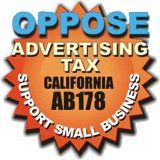Social networking giant Facebook is reportedly going to pull in approximately half a billion dollars this year in advertising revenue. It's a significant amount, but hundreds of millions of dollars more are being made on Facebook through virtual currency transactions that Facebook has no part of.
Facebook, of course, has its own official virtual currency, Credits, but most Facebook app developers can't integrate them with their apps, and are not required to use them.
In short, Facebook created a thriving developer ecosystem with its open platform, but the 'open' nature of it has potentially cost the company hundreds of millions of dollars a year in revenue. Ironically, apps developers like Zynga, which have developed own virtual currency, are some of Facebook's most lucrative advertisers. They make lots of money from their Facebook apps, and Facebook gets some of that back in the form of ad buys.
But if Facebook is going to get where it needs to go, that's not enough. Rumors are now circulating that Facebook may be planning to inject itself into the virtual currency trade that takes place on its service by mandate.
According to Insider Facebook, Facebook is talking to large developers about virtual currency, and mandatory use of Facebook's Credits system is on the table. Ostensibly, Facebook would be looking to take a relatively substantial cut of the revenue. Perhaps even "an Apple-like range around 30%" as Inside Facebook speculates.
From a business standpoint, this is a no-brainer. Facebook could probably generate more than $1bn in revenue in 2010 if it muscles in on the virtual currency business. And there are good reasons why developers would be interested in Facebook playing a stronger role. After all, by making Credits universal, there'd be a single virtual currency that all Facebook users can put to use on any app that features virtual currency. That, of course, makes the virtual currency more valuable to end users.
Unfortunately, there are a number of challenges that may make Facebook's life difficult. A mandatory Credits regime would:
- Change the very nature of the Facebook platform. By mandating that Credits be a virtual currency option in all apps that employ virtual currency, Facebook would be going back on what it told developers when it launched the platform: "You are free to monetize your canvas pages through advertising or other transactions that you control". Even if developers are free to use third party virtual currency platforms alongside Credits, the requirement that Credits be used too is not "control".
- Change Facebook's relationship with developers. Right now, developing an app for Facebook doesn't create a formal relationship with Facebook. Yet if Facebook mandates that all (or some) developers support Credits, it will essentially turn Facebook into a development 'partner' of sorts, which could raise some interesting issues. For instance, will developers have creative control over the implementation of Credits, or would Facebook require that integration be done in a certain way? If so, it's worth considering that Facebook's requirements may be at odds with the creative desires of the developer.
- Create new responsibilities and burdens for Facebook. Right now, Facebook does have a variety of rules that developers must abide by. And it does occasionally enforce them. But even so, the recent scam offers controversy has led to a lawsuit in which Facebook is named as a defendant, even though it really wasn't involved. So imagine the potential liabilities Facebook could incur when it is directly involved with the majority of the virtual currency transactions that take place in third party apps. What if a rogue developer creates an app that scams users out of Credits, for instance? Facebook will certainly have to police against these sorts of things, but that will be tough and costly.
Frankly, I think Facebook probably underestimated how successful its development platform would be. In an effort to lure developers, who in turn would build apps that would lure more users, Facebook seems to have overlooked the possibility that those apps themselves would become so lucrative. It was merely trying to get more users which it would figure out how to monetize those users later.
And so it figured it would throw developers a bone: let them figure out how to monetize their own apps. Ironically, it was the developers who created the more lucrative business model and Facebook has left hundreds of millions of dollars on the table with its "you build it, you monetize it, you keep the money" approach. Now it wants to get those dollars back. It will definitely need a lot of good luck.







No comments:
Post a Comment